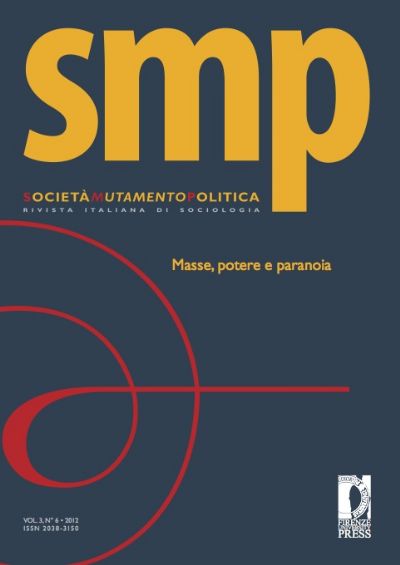The community was the first form of social organisation of human beings, later replaced by society after the processes of industrialisation, modernisation and secularisation, but it has been the subject of many social scientists (Durkheim, Tönnies, to name but a few), only to return to the scientific scene in the second half of the last century.
Cultural value has always been expressed in the concept of community, which represents a “collective self” capable of mobilising struggle and resistance for the realisation of social and political utopias (Etzioni, 1995; Blokland, 2017). The community is thus a catalyst for identity, culture, emancipation and struggle, and becomes the core of resistance to dominant models in order to build alternative visions (Antonucci, Sorice & Volterrani, 2024). Communities in this sense are micro-examples of different ways of thinking and learning, of alternative ways of doing and acting (communities of practice and communities of resistance): an invitation to return to the organisation of “social space”, to work and mutual care, to the common good and conviviality. Whatever the level and meaning at which it operates, the community defines the bond with others by intervening in the forms of construction of the social, relying on the imaginary knots that weave its symbolic power.
The proposed monographic issue is not intended to be a study of community as a concept sic et simpliciter, but wishes to focus its attention on those forms of community that are configured as “resistance” – communities of resistance (Sivanandan, 1990; van der Velden, 2004; Aiken, 2015; Everett, 2022) – engaged in the defence and strengthening of social relations and structures in response to a crisis, threat or unwanted change. They may aim to defend rights and reduce inequalities and/or protect and promote “common goods” and “common resources”, including through forms of partnership with public and state institutions (Ostrom, 1990).
The transition from what has been identified as the social organisation of the community to the community of resistance is an ongoing process that has been accelerated by the Web and social networks, which have always been interpreted as a space for building diverse forms of community, some of which have become real places of resistance where identities can be constructed (or reconstructed) beyond the dominant culture (DeVries, 2002), thus determining a mutual shaping effect with the transition from the offline world (physical environment) to the online world (digital environment). The transition from the community to the community of resistance is not a direct one, in fact, in the middle are the communities of practice – often also identified as forms of collective intelligence (Lévy, 1997) – which develop and share knowledge through a series of theoretical concepts that constitute the frame of reference within which to move in order to trace the evolutions and transformations in the present and the near future.
In short, this monographic issue proposes a reinterpretation and, at the same time, a reconfiguration of the relationship between the community and the cultural, economic and political dimensions within the social space, which is transformed into a true “agora”, since it is no longer only the space of denunciation and criticism, but that of a reorganisation of society from below, where political action is exercised by the community (Bosi & Zamponi, 2020). The realisation of practices capable of influencing the construction of the democratic political-institutional design has given rise to a significant field of experimentation, which highlights the importance of the growth of forms of participatory citizenship and organised activism in the public arena, in order to institutionalise these practices and transform them into real instruments of policy, thereby strengthening the legitimacy of the new participatory instances.
The special issue will welcome contributions, both theoretical and empirical, on the following topics (the list is not exhaustive, but rather indicative of possible topics):
- Community in a fragmented society
- Community as “social space”
- Vulnerability and resilience
- Collective action and the community of resistance
- Resistance and urban movements
- Antagonism and cultural resistance in the digital space
- Artistic practices as struggle and resistance
- Solidarity buying groups
- Digital disconnection as a form of resistance
- Resistance communities in liminal spaces
- Alternative consumer communities
Submission of abstracts:
The special issue will be in English. Extended Abstracts (from 800 to 1,000 words, references excluded) must be submitted to all guest editors by 15 October 2024 (emangone@unisa.it; michele.sorice@uniroma1.it).
Acceptance of abstracts will be notified by 15 November 2024. The deadline for submission of full papers is scheduled for 15 May 2025.
Submission Guidelines:
Full paper submissions should be sent via the SMP submission system by 15 May 2025 and should follow the journal’s editorial guidelines. All submissions will be peer-reviewed.
Deadlines:
Submission of abstracts: 15 October 2024
Decision on abstracts: 15 November 2024
Submission of final papers: 15 May 2025
Communication about peer review: 15 July2025
Submission of revised papers: 30 September 2025
Publication: November/December 2025
DOWNLOAD PDF

